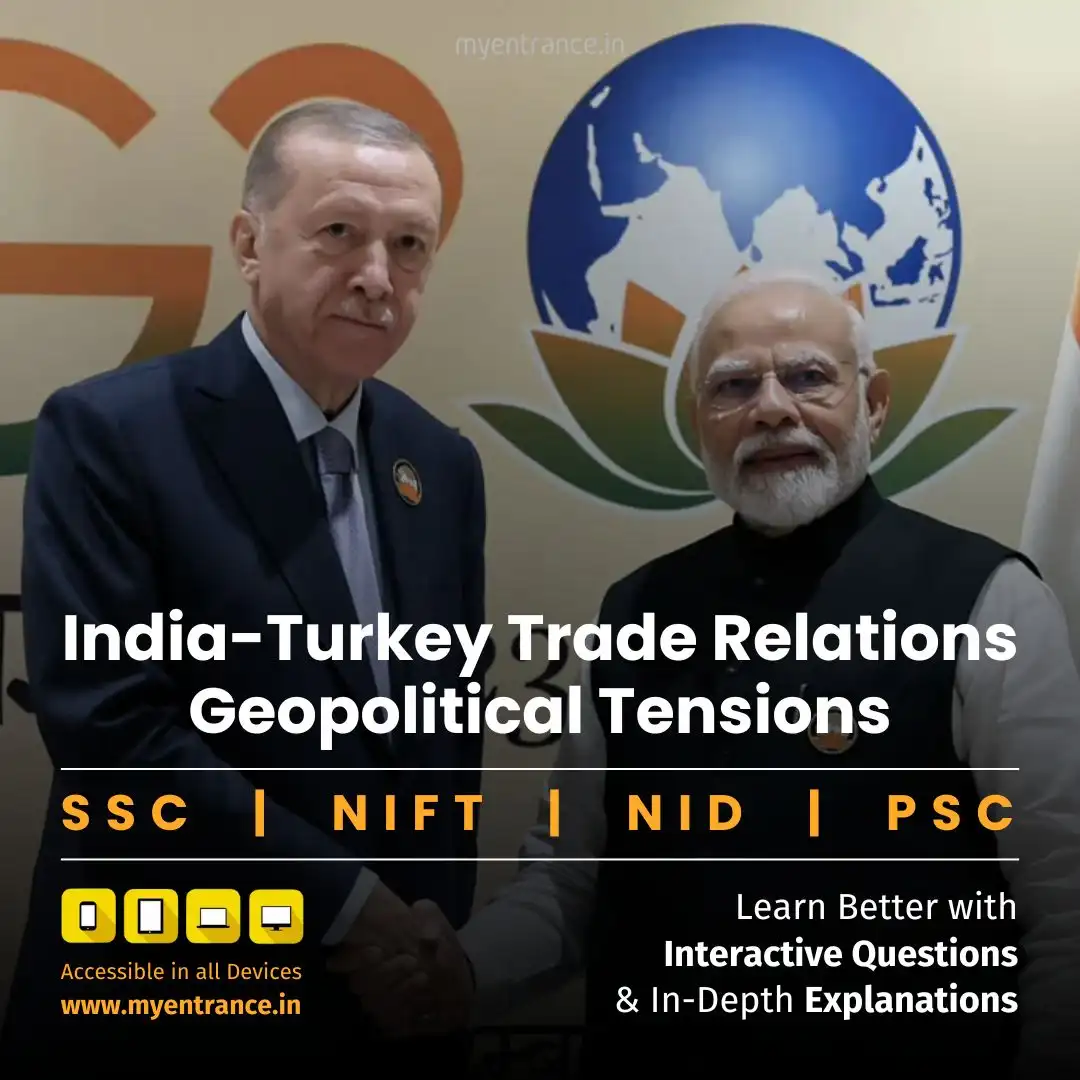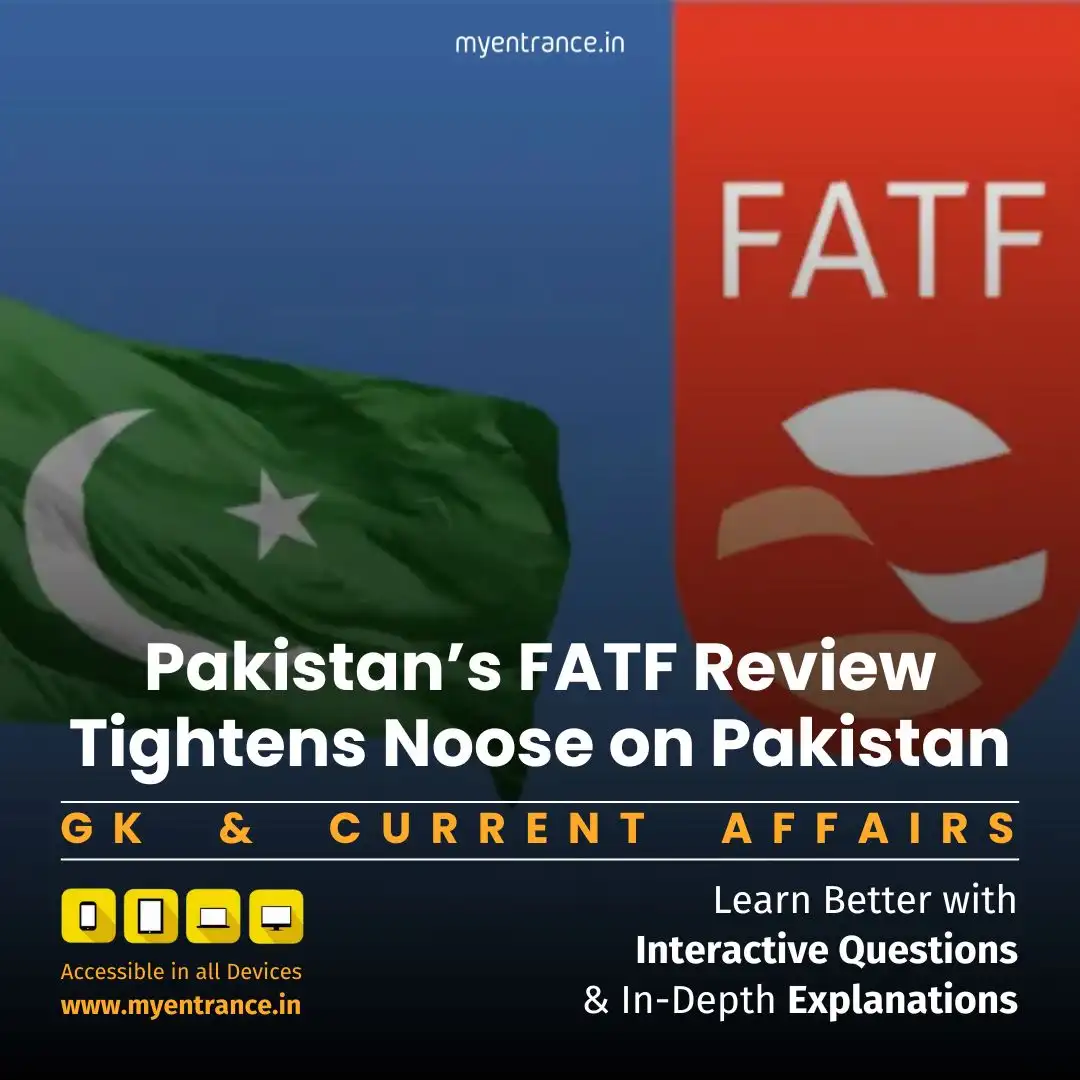Select Language
India-Turkey Trade Relations: Strategic Balancing Amid Political Tensions
India’s trade relationship with Turkey is marked by a significant surplus, with exports reaching $5.72 billion in FY25—driven largely by high-value industrial goods such as engineering products, chemicals, and electronics. Turkey, on the other hand, exports lower-value agricultural and mineral commodities like fruits, gold, and marble to India. This imbalance has occasionally sparked calls for trade restrictions, but India maintains a cautious approach to protect its economic interests.
1. Major Sectors in India’s Exports to Turkey
Engineering Goods: 50%+ of exports ($3 billion in FY25).
Organic/Inorganic Chemicals: Petrochemicals, APIs.
Electronics: Telecom equipment, semiconductors.
MSME Contribution: 35-40% of engineering exports.
2. Why India Enjoys a Trade Surplus ($2.73B in FY25)
Export Composition: High-value industrial goods (engineering, chemicals) vs. Turkey’s low-value agri/mineral exports (fruits, marble, gold).
Post-Ukraine Opportunity: Turkey boosted petroleum imports from India (now declined).
Limited Turkish Imports: Fruits/nuts ($107M), gold ($271M), marble.
3. Economic Rationale for India’s Cautious Trade Approach
Trade Surplus Protection: Banning Turkish imports (e.g., apples, marble) could trigger retaliation, hurting India’s $5.72B exports.
MSME Vulnerability: 35-40% of engineering exports to Turkey are MSME-driven; tariffs would devastate small businesses.
Strategic Market Access: Turkey bridges EU/Central Asia; vital for India’s export diversification.
Cost-Benefit Analysis: Political messaging (e.g., security curbs on Celebi Aviation) is prioritized over broad trade bans to safeguard economic interests.
4. Trade Diplomacy: Decoupling Politics from Economics
Targeted Sanctions: Revoke security clearances (e.g., Celebi Aviation) without disrupting trade.
Sectoral Engagement: Promote industrial exports while restricting non-critical imports (e.g., luxury gold).
Dialogue Channels: Use platforms like G20/WTO to address disputes, insulating business ties.
Example: India-China trade continues despite border tensions ($118B trade in 2023).
5. Implications of Trade Curbs on India
Retaliation Risk: Turkey could tax engineering/chemical exports, hitting MSMEs and $3B revenue.
Supply Chain Disruptions: Critical sectors (e.g., electronics) rely on Turkish industrial demand.
Geopolitical Fallout: Undermines India’s “Extended Neighborhood” outreach (Central Asia via Turkey).
Domestic Costs: Cheaper Turkish apples/marble benefit consumers; bans may inflate prices.
Key Takeaways for Answer Writing
Trade Asymmetry: India’s surplus stems from exporting high-value industrial goods while importing low-value agri/mineral products.
Political Pragmatism: Security measures (e.g., Celebi ban, tourism dip) are delinked from trade to protect economic interests.
Domestic Pressures: Himachal apple growers/Udaipur marble processors seek bans, but govt prioritizes exporter interests.
Strategic Restraint: Blanket trade bans risk $5.72B exports; targeted actions balance geopolitics and economics.
Most Predicted Questions
Comprehensive study materials, Expert-guided tips & tricks, Mock tests and instant results.
Start your SSC, NIFT, NID, FDDI, PSC journey today with MyEntrance, your ultimate online coaching platform.








